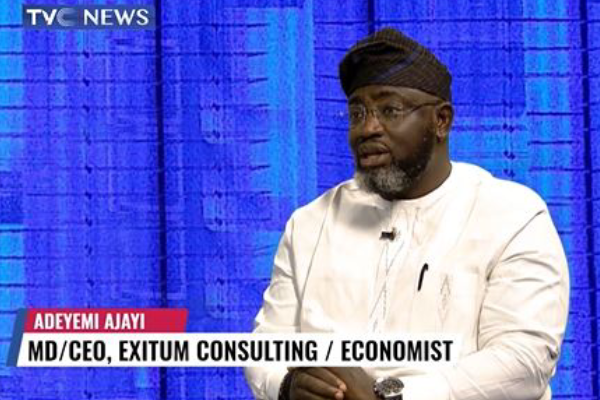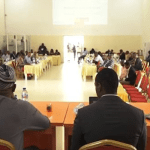Nigerian civil servants are ending the year, 2022 with cheery news from the federal government.
Minister of Labor and Employment, Chris Ngige says government will soon announce salary increments for civil servants to cushion the effect of rising inflation on consumer goods and services.

The Minister also says a presidential committee on salaries is doing a review of the existing salary structures and is expected to come up with the salary adjustment early in 2023.
The average Nigerian is currently going through a hard time as prices of staples have doubled. A price of rice now costs way more than the country’s minimum wage. Other staples like yam, bread and garri have also increased as well as the cost of transportation.
Economist, MD/CEO Exitum Consulting, Adeyemi Ajayi says what federal government has said concerning salary increment for civil servants should not be a cheering news.
“If I say I’m going to raise the wage of my employees, for example, nobody knows how much I’m going to raise it by. Don’t be surprised if the raise comes at a rate that makes no sense to the workforce.
According to Mr Ajayi, this is long overdue.
The Economist who noted that when this conversation about salaries began in 2018 with a review of the minimum wage to 30,000 naira, it was very clear.
“Exchange rate back then was about $77 for the 30,000 minimum wage but right now it is about $44. This doesn’t come as a cherry news.
“In terms of going in the right direction? at this point, it’s a big problem.
“Our debt profile is about 22 trillion, we’re servicing with about 6.5 trillion, where are we going to get the money from?
Mr Ajayi added that we should also be mindful of the fact that we have new government coming in and no one knows what can happen but we are very hopeful and very optimistic.
“I don’t see any magic the incoming government can perform, but for now, I do not see any alignment between the increment and our current situation.
“But the truth is this increment is long overdue for the workers.
Speaking on if the timing of FG’s decision is more political than the socioeconomic realities currently being faced right now, Mr Ajayi said
it’s both political and also aligning with the realities on ground.
Political in the sense that any government that wants to push the interest of any candidate, probably in terms of continuum, will want to do something to make the workers happy, but will the workers really be happy. That is the question we should ask ourselves, whether they will be happy with what’s going to happen.
But again, it’s in alignment with what we’re facing in terms of reality.
He noted that the purchasing power for Nigeria is 8.28, according to a research company, Nambia, which is one of the lowest in the world.
“Purchasing power is one of the lowest in the world. The cost of living is 30.47, one of the very lowest in the world as well.
“There is huge poverty in the land. Bringing this to cushion the effect of inflation, as the Minister of labor and Productivity mentioned, it’s good, but it’s playing both roles, political and also aligning with the economic realities on ground.
Again, we need to ask ourselves if the government have the capacity to really meet this need.
Mr Ajayi added that this salary increment for civil servants is long overdue which is definitely what they deserve but he does not see the government having that capacity to meet up this obligation.
” Again, it has priority effects. First, by the time the federal government does that, the state government workers will want the same.
“There will be a lot of agitation especially if there is no capacity to pay. This might be counter productive.
Mr Ajayi added that this leaves the average Nigerian with promises that might end up not being fulfilled.
“I think what the government should do is to be true to itself. Maybe or not this has been planned for. But one thing we should put at the back of our mind is there is misalignment. The capacity is what we should question, is there capacity for them to fulfill this.














